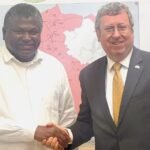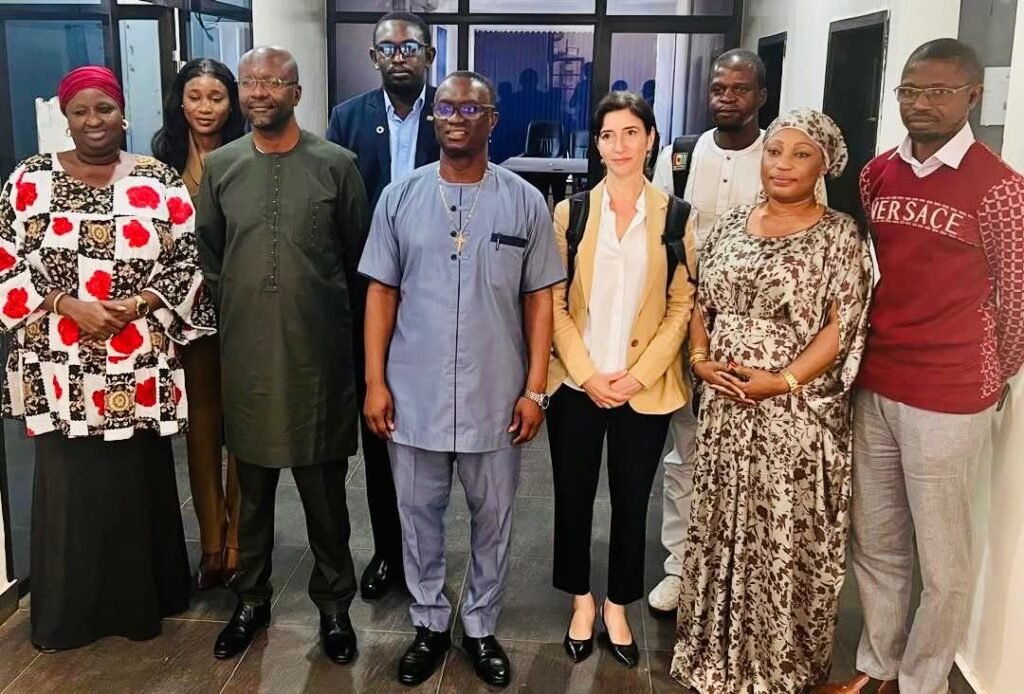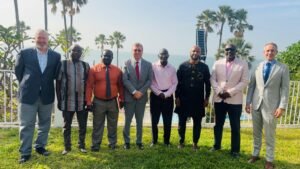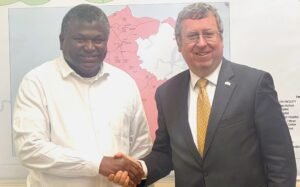The Ministry of Higher Education, Research, Science, and Technology (MoHERST) today hosted a pivotal meeting with UNESCO’s Regional Office for West Africa (BREDA), aimed at advancing educational reforms and initiatives in The Gambia. Led by the Honourable Minister of Higher Education and the UNESCO BREDA Director, the discussions covered critical areas such as data-driven decision-making, technical education enhancement, and higher education reforms.
A key focus was the progress of the comprehensive Education Simulation Model, a collaborative effort involving MoHERST, the Ministry of Basic and Secondary Education (MoBSE), and the Ministry of Finance and Economic Affairs (MoFEA). This initiative seeks to revolutionize education policy planning through precise data collection and analysis. “If you cannot measure, you cannot manage,” stated the UNESCO Regional Director. “Africa has had the best strategies and plans since the 1960s. What we need now is implementation, and The Gambia is showing a strong commitment to turning plans into action through data-driven decision-making.”
The minister underscored the importance of evidence-based planning, stating: “In education, you don’t do what you want – you do what is supposed to be. Development cannot take place without data. Policy decisions must be informed by real, authentic data to achieve targeted outcomes.”
Significant developments discussed included the progress of the UNESCO-KOICA Youth Empowerment Project, which equips youth with employable skills; plans to transform Gambia College into a University of Education; an ambitious PhD training programme for lecturers; the development of specialised TVET centres focusing on agribusiness and fisheries; implementation of UNESCO’s Open Science Recommendations; and the introduction of a new Science, Technology, and Innovation Policy aligned with global best practices.
“This partnership demonstrates our commitment to achieving educational excellence,” said the Honourable Minister. “Through UNESCO’s support, we are strengthening our capacity to deliver quality education at all levels.” The UNESCO Regional Director reaffirmed the agency’s dedication to reducing global educational disparities.
“Through initiatives like Campus Africa, we are committed to bridging the gap between Africa and the rest of the world. The Gambia’s progress in higher education reform makes it an exemplary partner in this mission,” he said.
This meeting marks a significant milestone in The Gambia’s efforts to enhance its education sector, positioning the country as a leader in innovative and inclusive educational practices.











More Stories
GPF holds sensitization programme at Gambia Senior Secondary School
Gambia, Senegal Seal Ambitious Education Pact to Expand Scholarships and Innovation
Gambia unveils National Madrassah Board in landmark education reform